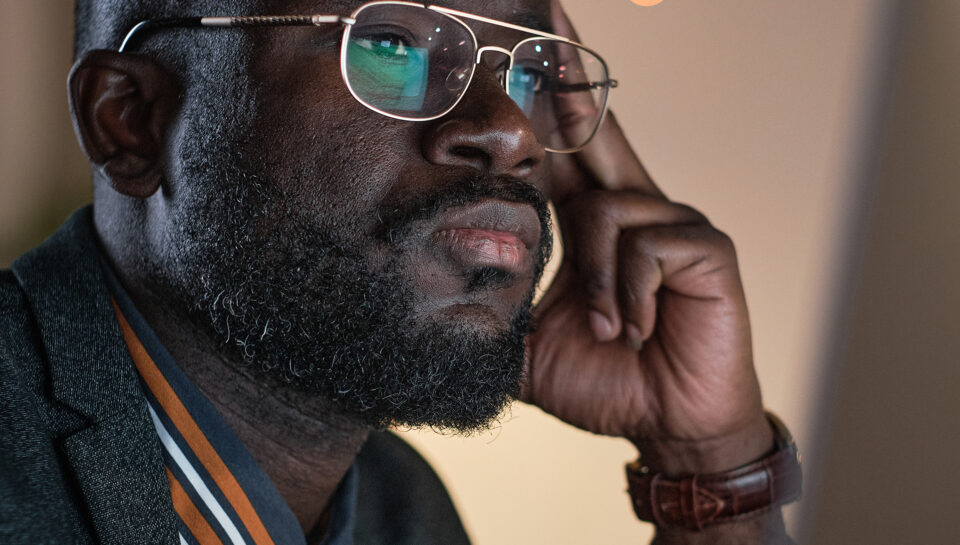Every founder, whether in Lagos, Nairobi, or Cape Town, eventually faces a pivotal question: Is it time to change course? The journey of a start-up is seldom a straight line. This question becomes even more pressing in Africa’s vibrant entrepreneurial scene, marked by infrastructural gaps, fragmented markets, and complex regulations. Pivoting, or radically altering one’s business model or direction, is often painted as a last resort or a sign of failure. But a pivot can be the most brilliant move a start-up ever makes. It can mean the difference between stagnation and scale, especially on a continent where challenges and opportunities are two sides of the same coin. This editorial explores when a start-up should pivot, drawing on African perspectives and the ethos that failure is not shameful – it’s often the necessary starting point for success.
Embracing the “Zero Point”
Entrepreneurship begins at zero, with an initial idea or experiment without guarantees. In many cultures, being a beginner or starting something new carries a newbie stigma, but African founders are increasingly reframing it as a learning phase to take pride in. Effectively, the zero point for entrepreneurs and founders is a gift of an untouched canvas with unlimited potential.
This perspective is crucial for African entrepreneurs operating in high-risk, uncharted territories. From the beginning, a founder must internalise that the “zero point” is a gift to discover treasures. Each setback, a prototype that flops, a deal that falls through, is rich with data and feedback. Like a child learning to ride a bike, each wobble and fall teaches “bike balance”. At the first stumble, “data is intuitively generated to enhance learning”, creating a feedback loop that propels the child from no skill (zero point) to one.
In startup terms, every failed feature or lost customer tells you something. It’s up to the entrepreneur to listen, learn, and iterate. By viewing failed outcomes as an attempt to achieve “bike-balance”, founders can iterate without pressure, tightening the gap between “zero point”, “not yet”, and “expertise” with each loop of the journey. Especially, in a continent where entrepreneurs may be first movers in their markets, such resilience and willingness to start again from zero is often the most valuable asset.
Pivoting Not Quitting: A badge of courage and adaptability.
When achieving a “bike-balance” steady state proves challenging, pivoting serves as a strategic adjustment rather than an act of resignation. It is essential to differentiate a pivot from surrender. A pivot, unlike quitting, involves utilising learned and acquired data from previous experiences to forge a more intelligent path forward. When an idea fails to yield results, founders with a learning mindset do not abandon their efforts; instead, they leverage their insights to modify the product, target a new market, or even completely revamp the business model. In this context, a pivot is not a deviation from the road to success but rather an expedited route informed by experience. It is a deliberate decision to apply valuable insights and change direction in pursuit of improved outcomes.
Crucially, pivoting is an act of learning, not a sign of defeat. It embodies the “not yet” attitude—the belief that “we have not succeeded yet, but we can with an alternative approach.” Psychologist Carol Dweck calls this the power of the growth mindset (the “Not Yet” mindset), which replaces thoughts of “I cannot” with “I am not there yet. For African founders, adopting this mindset entails recognizing that initial strategies may fall short, but each iteration brings the startup closer to a solution.
Consider the pan-African context: Many successful African companies discovered their winning formula on the second, third, or even tenth attempt. They treated each misstep as valuable market feedback rather than a final judgment. A study of the African startup ecosystem revealed that 35% of African start-ups pivot at least once before finding product-market fit, and those that remain in this feedback loop are three times more likely to scale. In other words, persisting through pivots significantly enhances the chances of building a scalable, impactful business.
Navigating Africa’s Unique Challenges as Pivot Fuel
African entrepreneurs face a landscape filled with both opportunities and challenges. Despite infrastructure gaps, fragmented markets, and regulatory complexities, they turn obstacles into opportunities. For instance, unreliable electricity and limited internet can prompt startup strategic pivots. Creative solutions include establishing payment systems or logistics networks where none exist.
Market fragmentation across 54 countries demands adaptability; what works in Kenya may not work in Nigeria due to cultural and economic differences. Regulatory changes also require quick adjustments. For example, when Lagos State banned commercial motorcycle taxis in 2020, bike-hailing startups like Gokada shifted to logistics and delivery services, saving their operations.
Knowing when to pivot is vital. Changes may be driven by external factors like new laws, competitors, or pandemics, or internal factors like profitability concerns. Successful entrepreneurs stay attuned to their environment, gather user feedback, and monitor regulatory shifts to build agile businesses that thrive amid uncertainties.
Recognising the Time to Pivot
Pivoting at the right time can save a struggling startup. Here are some signs that indicate the need for a pivot:
- Stagnant Growth: If metrics like user acquisition or revenue have plateaued despite your efforts, it’s time to reassess your assumptions. A West African edtech founder noted, “Our user growth was flat. We knew we had to change or become irrelevant.”
- Customer Feedback Misses the Mark: Persistent dissatisfaction or requests for features outside your offering indicate market misalignment. This signals a need to pivot to meet real market needs.
- External Market Shifts: New competitors, technological advancements, or policy changes can make your solutions obsolete. For example, a payments startup in Africa may suffer if a tech giant launches a free mobile money platform. Monitoring the landscape is essential; major shifts require a pivot for survival.
- Financial Strain: A startup struggling to generate sustainable revenue or facing investor rejection may need to pivot. An e-commerce venture in Nairobi cut costs and changed its model to survive by outsourcing deliveries.
Decisions to pivot should be data-informed. Avoid emotional attachment to the original idea. Use user data, market research, observations, and your instincts from daily startup life. As seasoned entrepreneurs say, fall in love with the problem, not the solution.
Turning Setbacks into Scale: African Pivot Successes
Many of Africa’s top startups have succeeded by pivoting, demonstrating that adapting to market insights can transform struggling ventures into industry leaders.
Take Flutterwave, for example. Initially focused on cross-border B2C payments, this Nigerian fintech unicorn pivoted to a B2B payments platform, offering comprehensive payment APIs and services. This shift allowed Flutterwave to expand into over 30 countries, becoming a fintech giant.
In East Africa, Twiga Foods began as a digital marketplace connecting rural farmers with urban vendors. They evolved into a supplier, sourcing and delivering produce directly to urban retailers and consumers. This pivot improved fresh produce distribution and attracted significant investment, enabling Twiga to scale across Kenya’s food markets.
Other examples include M-KOPA in Kenya, which transitioned from solar home systems to financing smartphones on a pay-as-you-go model, broadening their product offerings and revenue streams. Similarly, Andela shifted from a talent accelerator for African software developers to a remote work placement platform, connecting engineers globally with companies. These pivots, driven by market feedback, unlocked new growth and impact.
Humility to Pivot
In the final analysis, When should a start-up pivot? The simple answer is when the evidence compels you to, and before your venture hits the point of no return. It takes humility and courage to pivot, admit that a change is needed, and carry it out. African entrepreneurs have repeatedly shown that a pivot is not an admission of defeat but a bold investment in a better path. You can apply everything you’ve learned at the “zero point” and launch a new journey towards “one.”
For founders reading this, the message is clear and empowering: don’t cling to a failing course out of pride or fear. If your gut and your data tell you that a strategy change could serve your mission better, trust that insight. Remember that every great startup starts as an experiment – and experiments are meant to be tweaked. As the old proverb says, smooth seas do not make skilful sailors. With all its unique challenges, the African market’s choppy waters are forging a generation of skilful, adaptable entrepreneurs who know how to turn waves of adversity into wind at their back.
Article References:
mckinsey.com
thecable.ng
ingressivecapital.com






